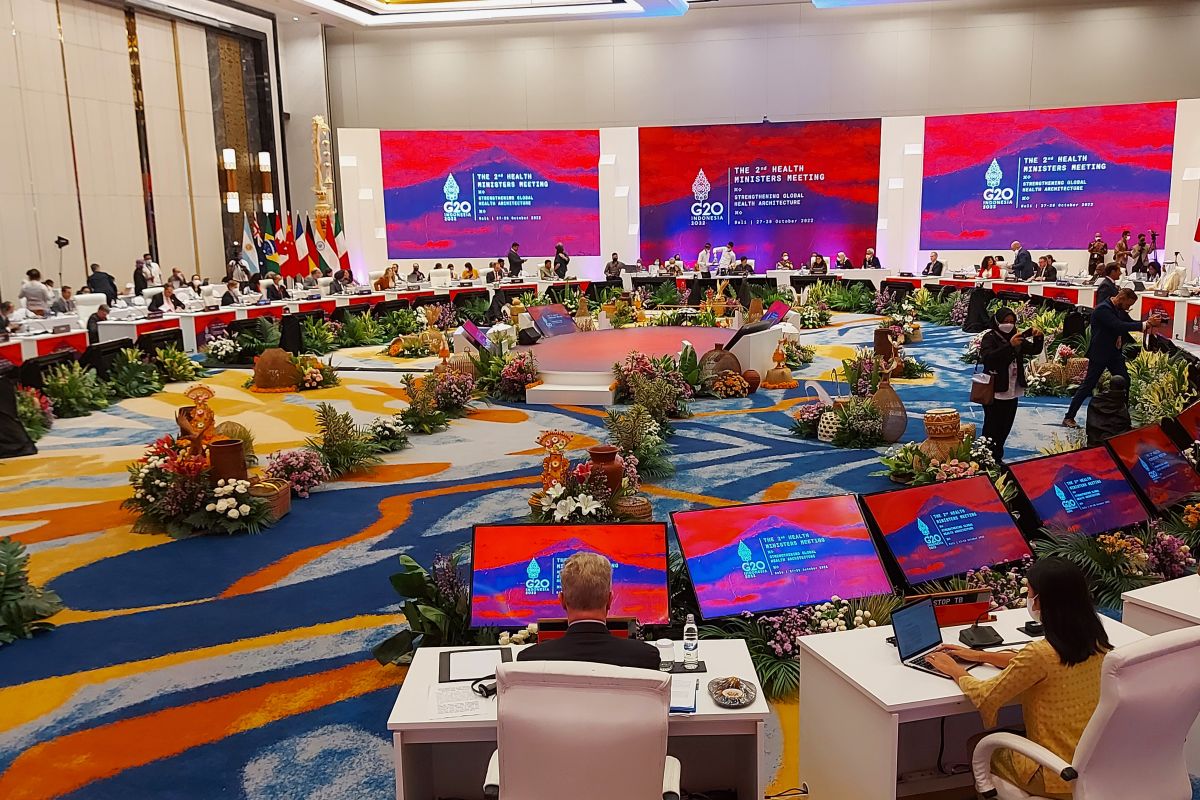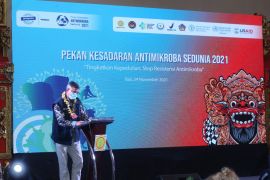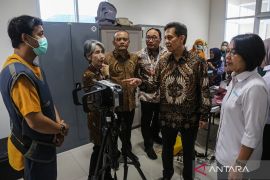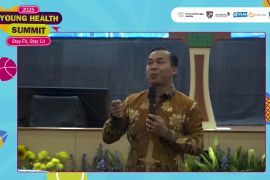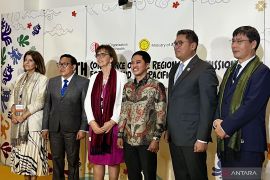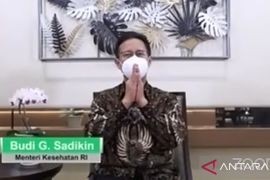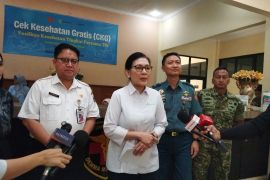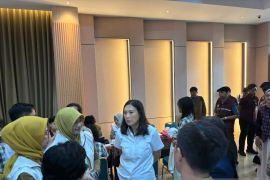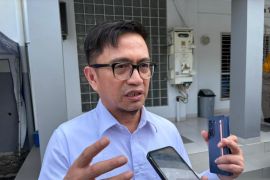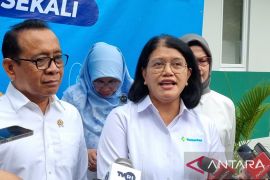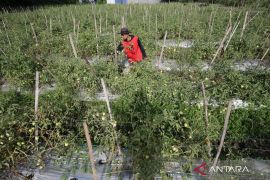Collectively, AMR results in a resistant infection (and is therefore) called ‘the silent pandemic.’Bali (ANTARA) - The 2022 G20 health sector meeting has emphasized the importance of handling antimicrobial resistance (AMR) using the One Health approach, Director for Health Service Quality at the Indonesian Health Ministry Kalsum Komaryani has said.
"Now, it is the time for G20 countries to implement national AMR action plans by using scientific evidence as our (strategy and policy) basis as well as increasing (health) interventions," she stressed at the 2nd 2022 G20 Health Ministerial Meeting (HMM) here on Friday.
HMM is a part of the Sherpa Track that discusses various global health issues. The meeting was held in Bali on October 27–28, 2022.
According to Komaryani, people need to stay vigilant against AMR since it can have a negative impact on humans, animals, plants, food, and the environment. AMR occurs naturally when microorganisms are exposed to antimicrobial drugs and manage to adapt and survive.
The resistance of the microorganisms makes existing drugs no longer effective for treating patients.
Komaryani said that AMR can affect any country, and it can occur in several countries concurrently, especially those with low economic levels.
"Collectively, AMR results in a resistant infection (and is therefore) called ‘the silent pandemic,’” she added.
She emphasized that more accurate and reliable data on resistance and exposure to antimicrobial drugs in humans, animals, plants, food, and the environment are required to address the threat of AMR. The data must be collected using the One Health approach.
"In addition, better and fairer access to vaccine, therapy, and diagnostic tools will help in preventing and controlling infections in humans, plants, and animals," she added.
Through a series of technical discussions, G20 members have identified a number of strategies that are expected to help address AMR.
In addition, the G20 nations are collaborating with the Food and Agriculture Organization (FAO), United Nations Environment Programme (UNEP), World Health Organization (WHO), and World Organisation for Animal Health (WOAH) in implementing the One Health approach.
They have also established the Multi-Stakeholder Partnership Platform on AMR to create antibiotics in accordance with public needs.
"G20 countries must be committed to increasing the coverage and quality of diagnosis of (microbial) infections and resistance at all levels of their health systems," the director said.
The Indonesian government is expecting to collaborate with India, which will hold the G20 presidency in 2023, to urge G20 members to immediately address the AMR issue, she added.
Related news: Indonesia highlights global vaccine equality to tackle COVID-19
Related news: Health industry democratization key issue for G20: official
Translator: Andi Firdaus, Uyu Liman
Editor: Rahmad Nasution
Copyright © ANTARA 2022
